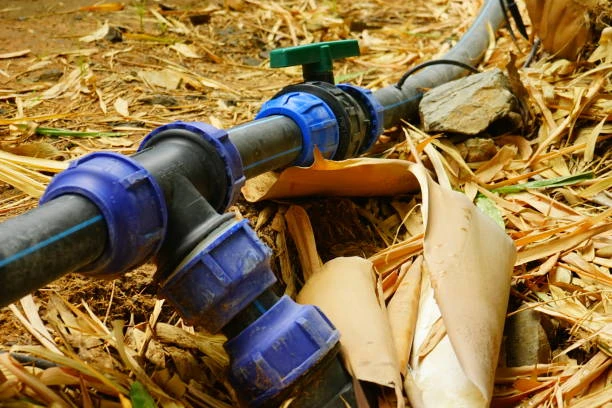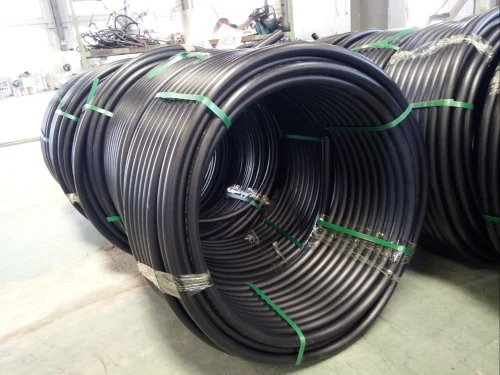Interplast: Leading the Way in Top Quality Plastic Pipes
In the rapidly evolving construction and plumbing sectors, the demand for durable and reliable materials has never been higher. Among the leading producers in Africa, Interplast stands out as a premier manufacturer of top quality plastic pipes. This article explores Interplast’s commitment to quality, its product offerings, and its impact on the African market.
The Importance of Quality in Plastic Pipes
Plastic pipes have become essential in various applications, including water supply, drainage, irrigation, and industrial processes. The quality of these pipes directly affects the efficiency, safety, and longevity of the systems they support.
Why Quality Matters
- Durability: High-quality plastic pipes resist wear and tear, ensuring they can withstand environmental factors such as UV radiation, temperature fluctuations, and chemical exposure.
- Safety: The use of non-toxic materials in top quality plastic pipes ensures that they do not leach harmful substances into drinking water or other fluids.
- Cost-Effectiveness: Investing in quality pipes can lead to significant savings in maintenance and replacement costs over time, as they are less prone to failures and leaks.
- Efficiency: Well-manufactured pipes provide smoother flow characteristics, reducing energy consumption in pumping systems.
Interplast: A Commitment to Excellence
Company Overview
Founded in Ghana, Interplast has established itself as a leader in the production of plastic pipes in Africa. With decades of experience in the industry, the company has built a reputation for delivering products that meet international standards. Interplast’s dedication to quality is reflected in its rigorous manufacturing processes and commitment to customer satisfaction.
Manufacturing Capabilities
Interplast operates state-of-the-art manufacturing facilities equipped with advanced technology. This allows for the production of a wide range of plastic pipes, including:
- PVC Pipes: Known for their rigidity and corrosion resistance, PVC pipes are widely used in water distribution and drainage systems.
- HDPE Pipes: High-Density Polyethylene pipes offer excellent flexibility and strength, making them suitable for a variety of applications, including gas distribution and sewage systems.
- PPR Pipes: Polypropylene Random Copolymer pipes are ideal for hot and cold water applications, providing superior thermal resistance and chemical stability.
- Fittings and Accessories: Interplast also produces a comprehensive range of fittings and accessories to complement its pipe offerings, ensuring seamless integration into various systems.
Quality Assurance
Interplast employs stringent quality control measures throughout its manufacturing process. This includes:
- Material Testing: Raw materials are thoroughly tested to ensure they meet the required specifications and standards.
- In-Process Inspections: Continuous monitoring during production ensures that any deviations from quality standards are identified and rectified promptly.
- Final Product Testing: Finished products undergo rigorous testing for durability, pressure resistance, and other performance metrics before being released to the market.

The Benefits of Choosing Interplast Plastic Pipes
1. Comprehensive Range of Products
Interplast offers an extensive range of plastic pipes and fittings, catering to various industries and applications. This diversity allows customers to source all their piping needs from a single supplier, simplifying procurement processes.
2. Local Manufacturing
As a locally based manufacturer, Interplast supports the African economy by creating jobs and reducing reliance on imported products. This local presence also enables faster response times and more personalized customer service.
3. Compliance with Standards
Interplast’s products comply with international quality standards, ensuring that they can be used in both domestic and international projects. This compliance helps to build trust among customers and stakeholders.
4. Environmental Commitment
Interplast is dedicated to sustainable practices, using recyclable materials and minimizing waste during production. The company actively seeks ways to reduce its environmental impact while providing high-quality products.
5. Technical Support and Expertise
Interplast’s team of experts is available to provide technical support and guidance to customers. This includes assistance with product selection, installation advice, and troubleshooting, ensuring that clients get the most out of their products.
The Role of Plastic Pipes in Africa’s Development
Plastic pipes play a crucial role in Africa’s infrastructure development. As the continent continues to urbanize, the demand for efficient water supply and drainage systems is growing. Interplast’s high-quality plastic pipes contribute to this development in several ways:
1. Improving Access to Clean Water
Reliable water supply systems are essential for improving public health and quality of life. Interplast’s pipes facilitate the efficient distribution of clean water to communities, helping to reduce waterborne diseases.
2. Supporting Agriculture
In agriculture, effective irrigation systems are vital for increasing crop yields. Farmers use Interplast’s plastic pipes in various irrigation applications, providing them with the tools they need to enhance productivity.
3. Enhancing Industrial Efficiency
Many industries rely on plastic pipes for transporting liquids and gases. Interplast’s durable and chemically resistant pipes support efficient operations in sectors such as food processing, pharmaceuticals, and petrochemicals.
4. Promoting Sustainable Practices
The use of plastic pipes can contribute to sustainability efforts by reducing water losses through leaks and providing long-lasting solutions that minimize the need for frequent replacements.
Future Outlook for Interplast and the Plastic Pipes Industry
The future of Interplast and the plastic pipe industry in Africa looks promising, driven by several factors:
1. Growing Urbanization
As urban populations continue to rise, the demand for reliable infrastructure, including water supply and drainage systems, will increase. Interplast is well-positioned to meet this demand with its high-quality products.
2. Increased Investment in Infrastructure
Governments and private sectors are investing heavily in infrastructure development across Africa. Interplast’s reputation for quality makes it a preferred supplier for many of these projects.
3. Innovations in Manufacturing
Advancements in manufacturing technology will enable Interplast to continue improving the quality and efficiency of its production processes, ensuring that it remains competitive in the market.
4. Expanding Market Reach
Interplast has opportunities to expand its market reach beyond Ghana and into other African countries, leveraging its reputation for quality and reliability.
Conclusion
Interplast has established itself as a top quality plastic pipes producer in Africa, delivering innovative and reliable solutions to meet the growing demand for efficient water supply systems. With a commitment to quality, sustainability, and customer satisfaction, Interplast is well-positioned to significantly impact Africa’s infrastructure development. As the continent continues to grow and evolve, Interplast’s plastic pipes will undoubtedly be at the forefront of this transformation.
FAQs
1. What types of plastic pipes does Interplast produce?
Interplast produces a range of plastic pipes, including PVC, HDPE, and PPR pipes, along with various fittings and accessories.
2. How does Interplast ensure the quality of its products?
Interplast employs stringent quality control measures, including material testing, in-process inspections, and final product testing, to ensure compliance with international standards.
3. Why are plastic pipes preferred over traditional materials?
Plastic pipes offer advantages such as corrosion resistance, lightweight handling, lower installation costs, and longer lifespans compared to traditional materials like metal and concrete.
4. How does Interplast contribute to sustainability?
Interplast demonstrates its commitment to sustainable practices by using recyclable materials, minimizing waste during production, and providing long-lasting products that reduce environmental impact.
5. Can Interplast assist with technical support?
Yes, Interplast provides technical support and expertise to customers, including installation advice and troubleshooting assistance.


















